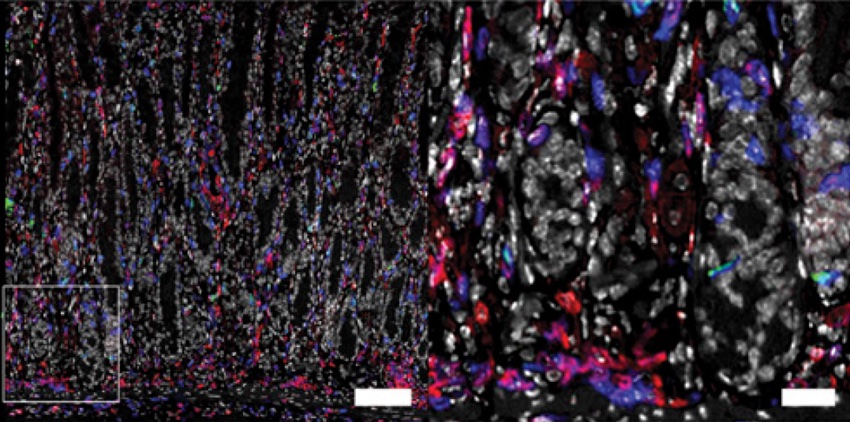Valerie O’Brien received her Ph.D. in Molecular Microbiology and Microbial Pathogenesis from Washington University in St. Louis. She is currently investigating gastric cancer as a post-doctoral research fellow in the Salama lab at Fred Hutchinson Cancer Research Center. The vast majority of gastric cancers are attributable to stomach infection with the bacterium Helicobacter pylori(Hp), which elicits chronic inflammation that drives gastric pathology. However, the mechanism(s) through which chronic Hpinfection and associated inflammation lead to gastric cancer are not well understood. Dr. O’Brien’s work integrates a novel mouse model of gastric preneoplastic progression, bacterial genetics and studies of human samples to investigate mechanisms of Hp-driven inflammation and disease.
Paul Kong
Research Technologist
Fred Hutchinson Cancer Research Center
Paul has over 15 years of experience in anatomical pathology with an emphasis on immunohistochemistry, including stints at PhenoPath Laboratories as a research technologist and CRO lab supervisor and at Leica Biosystems as a Field Applications Specialist. Currently, he is a research technologist at Fred Hutchinson Cancer Research Center specializing in multiplex immunohistochemistry panel development, digital pathology, and Halo image analysis.
ABOUT INDICA LABS, INC.
Indica Labs is the world’s leading provider of computational pathology software and services. Our flagship HALO® image analysis platform enables fast, quantitative evaluation of tissues using a broad range of artificial intelligence (AI) and computer vision algorithms. HALO Link™ and HALO AP® facilitate remote image analysis, collaboration and management. Through a combination of precision, performance, scalability, and usability our software solutions enable pharmaceutical companies, diagnostic labs, research organizations, and Indica’s own contract pharma services team to advance tissue-based research, clinical trials, and diagnostics.



































